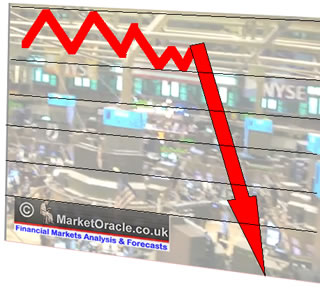Failure of Economic Policy Blowing More Financial Bubbles and Next Crisis
Economics / Liquidity Bubble Nov 11, 2009 - 09:52 AM GMTBy: Claus_Vogt
 Since last year’s collapse of the banking system, hundreds of billions of dollars have been spent to bail out some of the major players. Additionally, governments all over the world, and their central banks, have implemented huge stimulus programs to combat the consequences of the burst real estate bubble.
Since last year’s collapse of the banking system, hundreds of billions of dollars have been spent to bail out some of the major players. Additionally, governments all over the world, and their central banks, have implemented huge stimulus programs to combat the consequences of the burst real estate bubble.
Economic history is being written right before our eyes. Hence, I refer to this episode as the largest economic experiment since the implementation of communism. And here’s what really frightens me: None of the experimenters saw this crisis coming, but all of them claim to know the remedy!
At the same time politicians and economists are very busy explaining what they deem to be the reasons for the economic malaise …
Speculators, hedge funds, greedy bankers, and lax regulators are said to be responsible. And a lot of talk about a market failure is being presented as the alleged root of this crisis.
Sure, hedge funds, bankers, and regulators certainly played a role. But their reckless behavior is but a symptom of what had been going wrong and was not the cause. And the latter proposition is plain wrong. Let me explain why …
This Crisis Is Not a Market Failure. It’s a Monumental Policy Failure!
 |
| Irrational central bank policies are the source of the current crisis. |
By now, nobody — not even Greenspan or Bernanke — will deny that the U.S. housing market was a huge speculative bubble. And the bursting of this bubble triggered the banking problems and the recession.
So we have to look into what causes a speculative bubble to understand the real culprits of the current predicament. The answer is fairly straight forward: Expanding money supply and credit growth.
Since the central bank controls the money supply and credit growth, it’s obvious that the central bank is accountable for the evolution of bubbles and the consequences of their inescapable bursting.
You could easily conclude then, that an unsound monetary policy caused the real estate bubble. That means that the same unsound monetary policy is also accountable for the sad and predictable consequences of the bubble bursting.
Unfortunately we’re not hearing or reading much about this obvious truth. Instead, fairytales about market failure are dominating the media. And an old and cynical policy joke comes immediately to mind: “When the day of reckoning arrives there is but one policy solution: Lying, lying, lying.”
This seems to be the conclusion, the current credo of our politicians and the vast majority of economists. Many of whom are in the business of consulting politicians.
From Economists and Solar Eclipses …
To get a better understanding of what is going on let’s switch to an exemplary story: Suppose we were not dealing with economists but with another breed of scientists, let’s say astronomers. Nearly all of them are using the same theories and models. They’re highly regarded and some have even won the Nobel Prize.
Suddenly something totally unexpected takes place, a total solar eclipse! None of our astronomers had seen this coming. After a short moment of shock and silence, they quickly regain their confidence.
Immediately they start explaining extensively why it had been impossible to predict this eclipse — in spite of the fact that some of their peers had done exactly that, although with an alternative theory.
But the audacity doesn’t stop here. These so-called experts also come up with a variety of necessary measures to make sure that — no more eclipses will happen in the future.
This story illustrates perfectly the sorry state of our current mainly Keynesian-dominated establishment of economists. Their behavior is totally unscientific. And it’s way off track, too.
More Bubbles to Come …
 |
| The next crisis will be much more severe than the current one. |
As you can see, most politicians and economists haven’t learned anything from the near breakdown of the financial system. More of the same is their dangerous answer, much more.
Right now this policy is showing some desired effect: The housing market has stabilized, the stock market has risen and the economy has been growing again. But this short-term success has a dangerously high price …
Eventually this policy will again fail, like it did before. Already new bubbles are emerging, and the budget deficit is going through the roof! Now, however, the stakes are even larger, much larger. So the next crisis will be much more severe than the recent one.
My job now is to recognize when the current bounce is over and when the next act in this government-fueled crisis will begin. I’m confident that my models will again lead me successfully.
Right now I don’t see signs of renewed weakness. But we must stay constantly on the alert of changes for the worse. The next time down is unavoidable. And the outcome of this great experiment is clear.
Now the only question is: When?
Best wishes,
Claus
This investment news is brought to you by Money and Markets . Money and Markets is a free daily investment newsletter from Martin D. Weiss and Weiss Research analysts offering the latest investing news and financial insights for the stock market, including tips and advice on investing in gold, energy and oil. Dr. Weiss is a leader in the fields of investing, interest rates, financial safety and economic forecasting. To view archives or subscribe, visit http://www.moneyandmarkets.com .
© 2005-2022 http://www.MarketOracle.co.uk - The Market Oracle is a FREE Daily Financial Markets Analysis & Forecasting online publication.



